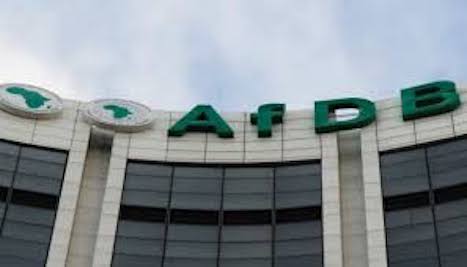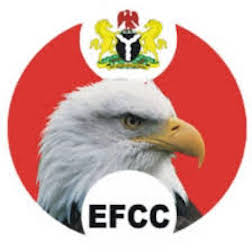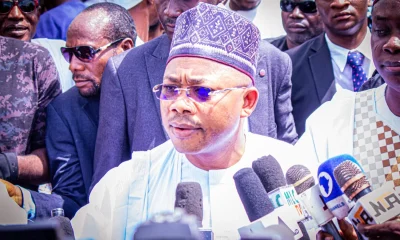Economy
AfDB Invests $2bn in 40 Innovations, ICT Projects in Africa

The African Development Bank (AfDB), said it invested about two billion dollars in 40 innovation and ICT investment projects across the continent since 2012.
Mr Lamin Barrow, Director-General, Nigeria Country Department, said this during the Nigeria Fintech Week on Tuesday in Abuja.
The theme of the exercise is, ”Fintechs: Resilience, Innovation and Diversification”.
He listed the projects to include the 170 million dollars financing for the Investment in Digital and Creative Enterprises (I-DICE) in Nigeria.
According to him, one major component of the project is the establishment of a venture capital fund(s) to finance startups in the digital and creative industries.
”Other examples include the 72 million Euro loan for the Digital Tunisia 2020 National Strategic Plan; the 124 million Euro support for the Central Africa Terrestrial Fibre Optic Backbone project.
”This covers Cameroon, Central African Republic and Republic of Congo; the 96 million Euro financing for Technology Parks in Cabe Verde and Senegal.
”And 25 million dollars support for development of the regional payment system in the West African Monetary Zone,” he said.
According to Barrow, Africa Digital Financial Inclusion Facility (ADFI), a partnership between the Bank and partners will support catalytic investments in digital infrastructure, policy and regulatory development.
This, he said, would also support the design of innovative solutions in the public and private sectors.
“In April, I had the honour to sign a grant agreement with Mr Segun Aina, President of the Africa Fintech Network, for 525,000 dollars in support of the “Africa Fintech Hub” through the ADFI.
”Upon completion in 2025, it is envisaged that at least 70 per cent of Africa Fintech Network members will actively use and benefit from this digital One-Stop-Shop online platform for all things fintech in Africa.
“Also, in 2016, we inaugurated the Boost Africa Programme together with the European Investment Bank, to support venture capital fund managers and entrepreneurs to address obstacles faced by start-ups,”he said.
Barrow said working with Smart Africa, the Bank was supporting the “Institutional Support for Digital Payments and e-Commerce Policies for Cross-border Trade (IDECT) project” and harmonising policies for e-payments.
This, he said, had the potential to drive growth of the African e-commerce market and expand intra-Africa trade, taking advantage of opportunities from the Africa Continental Free Trade Agreement (AfCFTA).
He said: “The Bank is investing in projects to help African countries close the gender gap, strengthen customer protection and improve cyber resilience of financial institutions, including fintechs.
“We are also partnering with global technology businesses such as Microsoft, Google, MasterCard and the Consultative Group to Assist the Poor (CGAP) to promote financial inclusion and accelerate digital transformation in Africa”.
The director-general acknowledged that while we celebrate progress in the fintech space, some challenges persist.
He said the regulatory framework needed to keep abreast with technological advances while providing space for innovation and disruption.
According to him, cybersecurity also remains a concern, and the digital divide, while shrinking, still exists.
He said that, ”Fintech companies must also invest in knowledge and learning to enhance capacity for risk management and regulatory compliance.
“However, these challenges present opportunities to be harnessed through collaboration, inclusivity and education.
”Strengthened partnership between banks and the fintech ecosystem will help drive harmonisation, combining legacy trust with new-age agility.
“As we take fintech solutions to scale, there is a moral imperative to ensure that they cater to the needs of all stakeholders.
”From the bustling streets of Lagos to remote villages in Borno. Fintech can and should bridge the gap, ensuring no one is left behind in this digital revolution”.
Barrow added that it was also crucial to build a strong talent pool and improve digital literacy.
He said empowering people with knowledge and skills would not just promote fintech, but also pave the way for a brighter, more inclusive African future.
He said: “The Nigeria Fintech Week therefore provides a robust platform for strengthening our partnerships.
”To promote innovation and product diversification while building resilience for scalable and sustainable impact.
“The AfDB is strongly committed to this partnership to accelerate Nigeria’s and Africa’s transition into the digital future”. (NAN)
Economy
SEC Advocates Advanced Financial Inclusion by 2030

By Tony Obiechina, Abuja
The Securities and Exchange Commission (SEC) has stressed the need for Nigeria to harness its demographic dividend to advance financial inclusion through investments by 2030 for national survival or face deepening inequality.
The Director-General of the SEC, Dr Emomotimi Agama said this at the United Capital Asset Management Investment forum on Wednesday in Lagos.
Agama, in his keynote address titled: “Advancing Financial Inclusion through Investments: Bridging
Nigeria’s Knowledge and Wealth Gap,” said Nigeria must harness its demographic dividend to boost investment.
“Our theme, Advancing Financial Inclusion through Investments, is not aspirational; it is foundational to national survival.
“We stand at a pivotal moment. By 2030, Nigeria can either harness its demographic dividend or face deepening inequality. The knowledge-wealth gap is not merely an economic challenge; it is a moral imperative,” Agama said.
He said the term inclusion should be reframed as active financial involvement, where access meets empowerment, and capital becomes a tool for transformation.
Agama said that closing the financial inclusion gender gap could lift 700,000 Nigerians from poverty.
He said, “Nigeria has a great population yet we have a tiny drop of this number of persons involved in the capital market.
“That one reason for poverty, because we are running from money. We have to do something. Our market capitalisation is an opportunity to do something,
We all have
“We need to change the narrative and move the market forward. We must reach out to make the difference. We are committed to protecting investors and developing the market. Our goal is to do the right thing no matter whose ox is gored. We will work by the principles of fairness and equity to change the market. We will provide a fair ground for everyone to aspire.
He noted that MTN Nigeria’s share offering drew 150,000 new investors – 75 per cent women, 85 per cent under 40.
Agama recommended a four-pillar strategy for bridging the gaps.
He listed the four-pillar strategy as democratisation of financial knowledge, catalyse MSME Investment Channels, blended Finance Vehicles: Partner with Bank of Industry (BOI) to de-risk loans for women-led SMEs.
“We need to educate people about finances. As we drive this market, we do so for a purpose, I enjoin everyone to be the disciple and the apostles. Getting this market to move is a deliberate action,” he added.
| ReplyReply allForwardAdd reaction |
Economy
NPA Assures of Over N1.27trn Revenue in 2025

By Ubong Ukpong, Abuja
The Nigerian Ports Authority (NPA) on Monday assured that it would take into the coffers massive revenue of over N1.27 trillion in 2025, representing a 40 percent increase from the N894.86 billion it realized in 2024.
This ambitious target, the Authority said, was anchored on sweeping modernization efforts, the full activation of the Dangote Refinery’s marine operations, and the deployment of cutting-edge technology to enhance port efficiency.
Managing Director of the NPA, Abubakar Dantsoho, disclosed this in a presentation during his agency’s budget defence session wih the House of Representatives Committee on Ports and Harbours, where he defended the agency’s 2025 budget estimates and provided insights into its 2024 performance.
“Our 2025 budget proposal is more than figures, it reflects our aspirations for a more efficient, globally competitive port system,” Dantsoho told lawmakers, adding that over 70% of the proposed expenditure will go into capital projects.
For 2024, the Authority surpassed its revenue target of N865.39 billion, posting an actual realization of N894.86 billion.
However, Dantsoho revealed that only N417.86 billion, less than half of the approved N850.92 billion expenditure, had been spent as of the time of reporting.
Despite this, NPA made a record contribution of N400.8 billion to the Consolidated Revenue Fund (CRF) in 2024, nearly double the N213.23 billion remitted in 2023. Of this amount, a staggering N344.7 billion was deducted at source.
“This shows our unwavering commitment to national revenue generation, even when our own operational liquidity is affected,” the NPA boss stressed.
Dantsoho said the projected revenue increase is premised on several key assumptions and developments, including: The full operation of the Dangote Refinery, which alone is expected to draw in over 600 vessels annually through its Single Point Mooring (SPM) system; the commissioning of upgraded terminals at WACT and OMT, which will enhance container traffic; the implementation of automation tools such as the National Single Window, Port Community System (PCS), and Vessel Traffic Management System (VTMS); and increased cargo volumes stemming from global disruptions, including the Russia-Ukraine conflict, which has affected global trade routes.
He said the 2025 revenue is expected to come from the following key sources: Ship Dues, N544.06 billion; Cargo Dues, N413.06 billion; Concession Fees, N249.69 billion; and Administrative Revenue, N73.07 billion
Of the proposed N1.14 trillion total expenditure for 2025, N778.46 billion is earmarked for capital projects.
This investment, he said, will target the revitalization of critical infrastructure, including the Calabar, Warri, and Burutu ports and channels, and enhance towage services, channel depth, and compliance with international security conventions.
“Investments in infrastructure and technology are non-negotiable if we are to stay competitive regionally and globally,” Dantsoho emphasized.
He cited increasing competition from neighboring ports and aging assets across Nigeria’s coastal corridors.
The NPA also intends to address technology gaps by upgrading legacy systems and bolstering cybersecurity, ensuring Nigerian ports meet global standards for digital operations.
“We can say that with timely access to internally generated revenue and capital funds NPA would deliver the kind of impact Nigeria expects,” he said.
Chairman of the Committee, Hon. Nnolim Nnaji, urged the NPA to ramp up performance, improve port infrastructure, and play a greater role in addressing Nigeria’s revenue and unemployment challenges.
Nnaji said the ports remain a critical pillar of Nigeria’s economy, and urged the agency to meet rising expectations despite operational challenges.
“No country can thrive economically without high-performing ports. They are the economic heartbeat of every nation, determining how buoyant a country is through the flow of imports and exports,” Hon Nnaji said.
The committee praised NPA for its performance.
Nnaji stressed that the NPA’s performance has implications beyond maritime activity, noting that increased port output can significantly boost job creation across several sectors.
“The Nigerian Ports Authority is not just a revenue-generating agency, it is a national asset in terms of employment and economic impact.
“We expect to see detailed strategies on how to improve revenue generation and expand employment opportunities through your 2025 budget,” he said.
The lawmaker also pointed to growing interest in the development of new ports across the country but cautioned against neglecting existing port infrastructure.
“As we welcome investment in new ports, we must not abandon the old ones. Maintaining and upgrading our existing ports, both in the Eastern Corridor and the Western axis, is essential to long-term sustainability,” he added.
The Committee called for a clear outline from the NPA on how its 2025 financial plan will address pressing national concerns and reaffirm Nigeria’s competitiveness in regional and global maritime trade.
Economy
Senate Sets N10trn Revenue Target for NCS, Urges Agency to Curb Smuggling, Illicit Drugs

By Eze Okechukwu, Abuja
The Senate, through its Committee on Customs has set a revenue target of N10 trillion for the Nigeria Customs Service for the 2025 fiscal year, instead of the initial N6.584 trillion given to her earlier on while urging the agency to clamp down on smuggling and Illicit drugs.
The Chairman of the Committee, Senator Isah Jibrin (Kogi East), who gave the agency the marching order yesterday in Abuja during the budget defence of the revenue driving agency however commended her for exceeding its 2024 revenue target of N5.
079 trillion.The NCS team led by Deputy Comptroller General, Jibo Bello who represented the Comptroller General presented the 2024 budget performance with a revenue target of N5.
079 trillion, stressing that the proposal was exceeded by over a trillion naira.The Committee, obviously impressed by the performance commended NCS before asking them to go ahead and present the 2025 budget proposal, which the agency tied at N6.584 trillion revenue target with an expenditure of N1.132 trillion.
Following their presentation, members of the Senate Committee on Customs unanimously approved the recommendation of the revenue target of N6.584 trillion and the expenditure of N1.132 trillion for the 2025 financial year.
The Committee will subsequently present the budget proposal to the Senate at plenary most likely this week as the red chamber resumes today after a long recess tied to Eid celebration.
In his final remarks, Senator Jibrin emphasised the need for the NCS to rise up in terms of its surveillance with respect to illicit drugs and smuggling “to ensure that, as much as possible, you should be on top of your game”.
He said there are so many illicit drugs flowing all over the place, which according to him “is contributing to the issue of banditry in Nigeria because most of these guys are on drugs. What I’m saying is that, in addition to your revenue drives, you should also be mindful of some of these other functions.


























